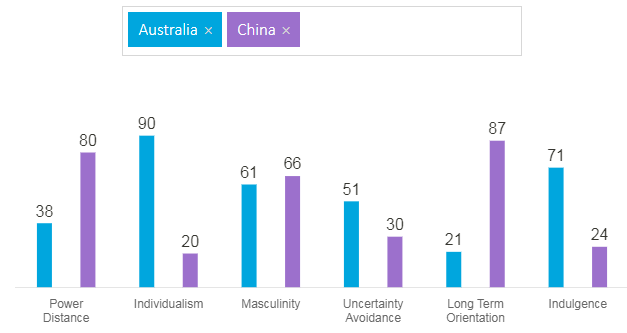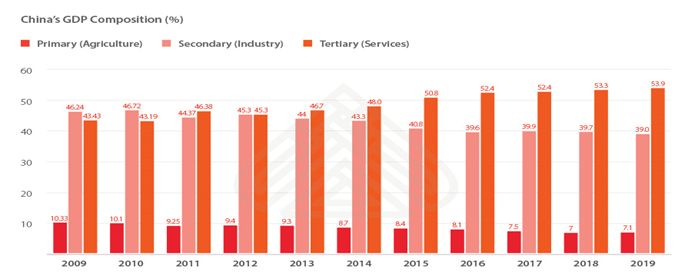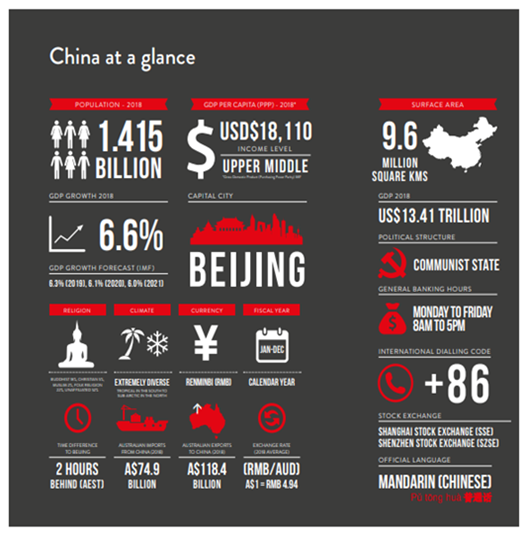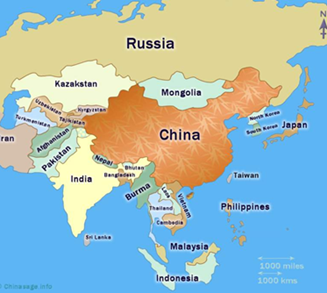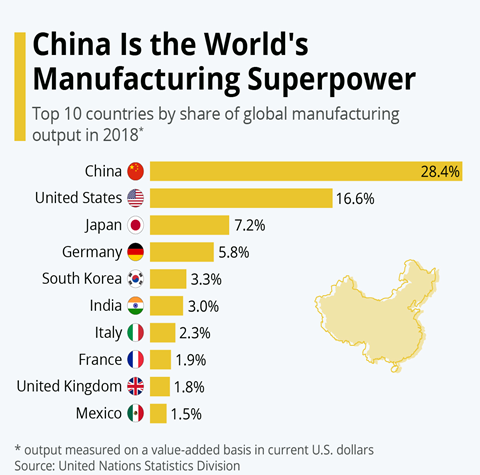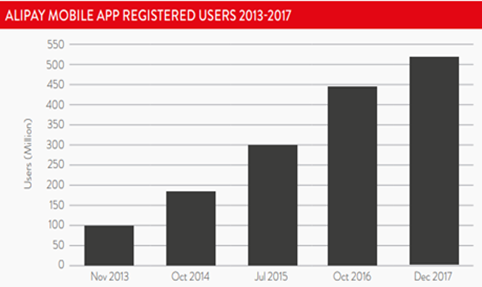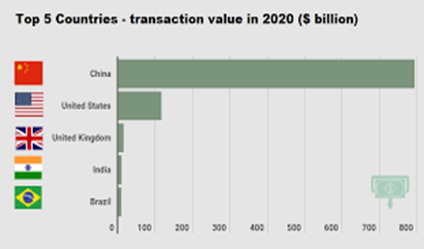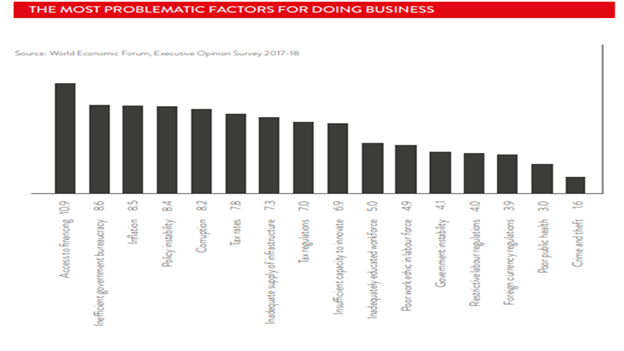Marketing Assignment: Business Opportunities & Challenges In China
Question
Task:
Marketing Assignment Task:
This marketing assignment involves understanding and analysing the opportunities and challenges of foreign firms doing business in China.
Your task is to analyze the following information of the chosen country to assess the opportunities and challenges of doing business in the country for a foreign business:
- Economic climate
- Political climate
- Legal and bureaucratic environment
- Social and cultural environment
- Managerial and labour environment
- Industry and policy factors
- Customer and competitive factors; and
The report should reflect the following:
- Understanding of the nature of case;
- Theoretical understanding of the research;
- Practical application of the study;
- Logic and clarity of the research; and
The audience: The audience for the report is the organisation’s CEO.
As such, your report needs to be written with this audience in mind; it should be developed to cover the issues of strategic importance at the CEO level.
Answer
Executive Summary
The report on marketing assignment is prepared to evaluate the challenges that the Australian financial technology company, Afterpay may come across while establishing its business in China. The country runs under the strict supervision of the Communist regime providing limited access to private enterprises. But China is the fastest economy in the world and treading the market will pave the opportunity to exploit the billions of internet users to try its business model. The country has language barriers, reservations towards foreigners, an ongoing tariff war with the US, the might of pandemic but still presents an incredible opportunity to exploit the Chinese market.
Introduction
The report will run a country analysis on the Asian superpower, China to find out the business opportunities and risks to operate there. It will be presented to the CEO of Afterpay, Anthony Eisen as the financial technology company is exploring the idea to tread into the Chinese market. The organisation is a start-up that started its journey quite recently in 2015 that enables the customers to delay their payment by a substantial time. The deferred payment facility helps the targeted customers to buy goods and services at a higher pace using the online and in-store mechanism.
Afterpay earns revenue only if the customer falters in payment by charging interest on such late fees. The company’s merger with Touchcorp in 2017 made it a formidable player in the market. By 2019, the company had over 4.6 million users with revenues worth AU$ 251.60 million(afterpay, 2021). Afterpay has its business operations across the US, UK, New Zealand, and Canada and looking to venture into the Chinese market as well. So this report will strive to throw insight on various factors like the external business environment alongside industrial scenario to contemplate an effective decision concerning the Chinese expansion.
Analysis
In this section, a detailed analysis will be carried out to understand the external business factors that can influence the workings of Afterpay in the Chinese territory. Theoretical approaches like the PESTEL analysis,Hofstede Cultural Dimensions,and a couple of other factors will be used to clarify the things in favour of Afterpay.
PESTEL Analysis
PESTEL analysis is a strategic framework to assess the external business conditions by running through various components like political, economic, social, technological, environmental, and legal factors(Lasserre, 2017). Subsequently, the report will run a comprehensive PESTEL analysis on the Chinese market to understand whether it will be suitable for Afterpay.
Political factors: The People Republic of China is a Communist state and the Communist Party of China (CPC) plays a dominating role in framing the government policies that affect the country. CPC is in power in the country since the Chinese Civil War in 1949 under the leadership of Mao Zedong(Liu & Van Dongen, 2016). Currently, the Chinese government is headed by Xi Jinping presenting a stable government encouraging both local and foreign businesses to have their establishment in the country. China despite its political ideology has adopted a market economy that facilitated the private economy to flourish in a limited form. So the Chinese government is a highly complicated hierarchical system and businesses like Afterpay ought to have proper knowledge of government functioning to operate(Handley & Limão, 2017). Though China has adopted capitalism in its socialistic way, the country still gives priority to the state-owned enterprises having growth as its key focus.
Economic factors : China is the 2nd largest economy with an approximate GDP of $13.41 trillion in 2018 after the US(worldbank, 2021). The country experienced massive growth since its reformation in the late 1970s wherein the growth often crossed 10%. Currently, the annual GDP growth rate is 6% as the Chinese economy matures. There are growing numbers of the middle class in China and the number is expected to reach 550 million by 2022(Asialink Business, 2019). China is the biggest trading partner of Australia paving scope for Australian businesses like Afterpay to establish their business in the country. The China Australia Free Trade Agreement (ChAFTA) inked in 2017 will smoothen the process as Australia earned the status of the ‘Most Favoured Nation’ (MFN)(Friedberg, 2018).But there are profound challenges like cultural and language barriers, reluctance to have trust in a private organisation over a state-run enterprise, and its complicated bureaucracy that may cause hindrance to the rise of Afterpay.
Social factors : China is the most populous nation in the world with 1.415 billion Chinese andthe 4th largest country covering 9.6 million square kilometres(Data.worldbank, 2019). The prevailing Communist regime has been able to unify the people of the massive country having a traditional outlook in terms of religion, family, and business conduct. As the country’s economy grew, it witnessed the massive participation of females in the workforce. Gender equality is a norm in China, so Australian women conducting business there will not look odd in contrast to other Asian states like South Korea or Japan(Liu & Van Dongen, 2016). The influence of globalisation and the Western World has changed the perception of the fellow Chinese and they have become more transparent to the changes around them. So pushing a new business idea like Afterpay will not be a hard task in the contemporary scenario.
Technological factors: China is considered the manufacturing hub of the world and technology plays a crucial role in this regard. The country has evidenced a surge in the rise of technology users numbering 632 million making itthe fastest and biggest e-commerce market globally(Li, et al., 2016). The e-commerce sales in China is approximately $840 billion in 2020 and the business volume exceeds that of its Australian counterpart. The 520 million smartphone users will provide a massive opportunity for Afterpay to exploit the Chinese market(Asialink Business, 2019). The younger generation is getting accustomed to mobile payments, online shopping, and digital marketing. The recent attack of COVID-19 forced the population across the world to maintain social distancing and get familiar to a digital way of life. Accordingly, the Chinese will seek a way to adopt Afterpay and its later payment business model.
Environmental factors: China is the fastest emerging economy globally and being a superpower it adheres to its part in delivering the environmental obligations. The state strives for an equitable growth phenomenon and innovations responsibly. There is the Hunan Subnational Governance and Rural Public Service Delivery Program for Results in 2021 to have efficient public services for the rural communities(worldbank, 2021). The China Food Safety Improvement Project in 2021 hasbeen implemented to enhance food safety regulations and compliances for an improved and healthier lifestyle. China has gained widespread recognition in tackling the COVID pandemic and its measure to improve the economy in its aftermath(Breslin, 2016). Subsequently, Afterpay needs to adhere to the given environmental regulations to serve the community and reduce carbon emission to run its business operations efficiently.
Legal factors: The Chinese legal structure is a combination of national laws, local and domestic regulations, court observations, local practices, and regulations framed by CPC. But the commercial laws have progressed much enabling foreign firms like those of the Australian businesses to operate in the country without any interruptions(Handley & Limão, 2017).
Hofstede Cultural Dimension
Geert Hofstede conceived a cultural framework across countries to understand the striking differences in culture that a business may face while conducting operations in a foreign land(Paine, 2019). The sorts of cultural dimensions can be understood when a particular country, say Australia will be compared with China as the preferred business destination. The various dimensions of Hofstede cultural aspects can be understood by studying the following elements –
Power distance: This particular element studies the level of inequality that persist in the organisational culture of the country. Australia scored 36 indicating that the hierarchical level in the country is quite flexible and the manager has support and trust in his fellow teammates (See appendix). Contrarily, China scored high at 80 indicating the level of inequality existing in the organisational culture. The senior personnel in the organisational hierarchy are placed distantly from their subordinates(Huang & Crotts, 2019). In comparison to Australia, Afterpay will come across a business scenario inflicted with a formal structure following a hierarchical structure against a flat Australian business structure.
Individualism: It is the degree of interdependency a society is poised among its community. Australia scores highly at 90 showcasing a high individualist cultural set-up(Hofstede-insights, 2021). The employees are self-reliant and display initiatives to grow owing to their cultural background of a loosely-knit family set-up. In contrast, China scores lowly at 20 due to their highly collectivist culture. The Chinese population is very influenced by Confucianism paving high priority to family(Chistyakova, 2016). Therefore, such facilities are even extended in the business set-up providing support to relatives and acquaintances. Though it is appreciating, too much interdependence on the social circle may affect the workplace culture as they may not trust their colleagues leading to workplace conflict.
Masculinity: It stands for the fundamental aspect that motivates people say striving to be the best as a masculine trait while the feminine trait stresses personal likings. Australia with a score of 61 is a masculine society showing aggressiveness to contemplate business goals. Similarly, China scored around 66 indicating their success-driven nature (Hofstede-insights, 2021). The Chinese are hardworking people who sacrifice their leisure and family time to earn and attain growth. They strive to be the best and Afterpay while establishing itself in the market will have employees who will work hard to ensure the success of the business(Beugelsdijk & Welzel, 2018).
Uncertainty avoidance: It is the level that determines the uncertain scenarios that the culture has to face against its beliefs and tradition to maintain its uniqueness(Al-Ali, et al., 2017). Australia scored 51 in this criteria implicating a balanced approach while it is 30 in the case of China. The Chinese are ambiguous souls and their gestures are not predictive to the opposite parties whether they agree or reject the proposal. Their yes can be a no and vice versa and it can be a real challenge for Afterpay as it strives to establish itself in the Chinese territory(Lok, 2017). But the Chinese are very adaptable and entrepreneurial will seek a growing opportunity as they come across.
Long term orientation: It indicates the propensity of the society to adhere to their past and spirit to face the challenges in the current scenario and those in the upcoming future. Australia scored 21 paving a normative culture that has the propensity to live in the present scenario, striving for quick success, and not worrying for the future. Contrarily, China scored 87 showing its pragmatic culture having the capability to adapt to situations as per the given circumstances(worldbank, 2021). So Afterpay can be assured that the Chinese market will pave to think for the future and adopt the ‘pay later’ business model considering the needs of the future and growing old population.
Indulgence: It is the magnitude that determines the capability of the population to control their impulses and desires(Hitt & Duane Ireland, 2017). Australia is an indulgent nation scoring around 71 as the Australians easily indulge in fun and leisure activities and spend heavily to switch into a luxurious way of life. But China has a restrained society owing to a score of 24 in this particular criteria.The outlook is pessimistic in comparison to the optimistic Australian society. This may be due to the hardship that the Chinese have envisaged four decades earlier. The middle-aged people are yet to get over such horrified times despite 700 million people came out of poverty (ABC News, 2018).
Industry And Policy Aspects
China like other countries have suffered enormously owing to the COVID pandemic. To repair the damages has reduced the VAT rate and extended financial support to the industries to boost production. The CPC decided to prioritise food security alongside stability in employment and enhancing efficiency in financial market operations, and foreign trade among others(Asialink Business, 2019). China has been instrumental in developing domestic markets alongside pursuing international exposures. The free trade agreement with Australia, ChAFTA is supposed to provide Australian businesses like Afterpay with better access in the market. Gradually the goods and services between the countries will be duty-free making the prices uniform offering better competition. The phenomenon will also lead to effective mobility of the workforce between the countries. But China has huge amount of debts amounting to $190 billion that is to be honoured shortly(worldbank, 2021). Positively, the deleveraging campaign of the Chinese government helped to reduce the instance of bad debts substantially maintaining its integrity in the international market.
Bureaucratic Environment :
There are enough bureaucratic challenges and red tapes in the Chinese business scenario as the foreign firms come across sorts of uncertainties. Those are influenced by local protectionism, inconstant enforcements, and lack of transparency especially in the lower level of hierarchy (Lasserre, 2017). So Afterpay while establishing its market in China may come across bureaucraticentangles that are often interpreted variedly at various levels creating a confusing scenario. It is because of the overt influence of the public corporations under the patronage of CPC limiting the scope of private enterprises.
Labour Factors –
China was once known for its cheap labour and the phenomenon encouraged the multinational corporations to shift their manufacturing there making it the global manufacturing hub.But as the Chinese become employed, their expertise and standard of living increased leading to an upward revision in wages(Friedberg, 2018). So the manufacturing shifted from the urban areas to the rural and less developed areas and even to other Asian countries like Bangladesh. China with time has been able to revive its educational sector producing a pool of qualified graduates(Hitt & Duane Ireland, 2017). These educated workforces can be utilised byforeign firms like Afterpay to spread its business operations in the country. The government has China’s Labour Contract Law stating the minimum wage that an enterprise has to provide to do away with the practice of labour exploitations.
Infrastructural Factors –
Infrastructure is considered the key to economic development in China having 4.9 million kilometres of highways and expressways. 84% of the Chinese roads are paved which is a remarkable feature that cannot be found even in developed countries like the US or Australia(Wong, 2020). The nation is the global leader in terms of inter-city high-speed rail networks extending 29,000 kilometres(Data.worldbank, 2019). Similarly, the navigation facilities are world-class making shanghai port one of the busiest ports in the world. So Afterpay can be assured of world-class infrastructural facilities in playing across cities and establishing offices across the country.
Competition –
In China, internet penetration is at its optimal state as 1.3 billion people are connected through modern telecommunications. It has provided a fillip to 900 million registered online users of Alipay, the third-party payment system of the Alibaba Group(Li, et al., 2016). Then there is the WeChat pay encouraging online buyers to indulge in the digital payment systems. Therefore, it will pave as an ideal opportunity for Afterpay to present its ‘pay later’ business model and attract a bulk population in its fold.
Challenges In The Chinese Market
China’s close association with Australia will lead to a grand entry of Afterpay in the said market but it needs to consider the sorts of challenges in the impending times, such as –
- China is gradually becoming a country ofthe aged population as the proportion of senior people is supposed to reach 25% by 2030 against the global average at 18%(Data.worldbank, 2019). The phenomenon is characterised by slower economic growth, a rise in healthcare expenses, and retirement costs.
- China is growing at a rapid pace and so does its urbanisation but a paucity of funds worth $28 trillion by 2040 to support the requisite infrastructure.
- China is home to 1.42 billion people and ensuring food supplies to such a massive nation during changing climatic scenarios is a challenging aspect for the country(worldbank, 2021).
- China has been recently in news for negative issues like COVID-19 and tariff war with the US paving uncertainties in such tumultuous market conditions.
- China has been experiencing a rise in labour costs that loses the sheen of its cheap manufacturing forcing the manufacturers to shift elsewhere.
- The Chinese people have little knowledge of English limiting their scope in international business.
- The strict monitoring of the Communist regime does not go well with many multinationalslike Yahoo, Uber leading to their exit from the country.
Recommendations
- Afterpay will be exposed to a massive market in China steering its international ambition.
- The company can exploit the regulations of ChAFTA to smoothen its entry point in China and have sorts of facilities for being the MFN.
- China is home to billions of internet users and it will provide scope for Afterpay to educate them of its business model and gain massive subscriptions in the process.
- Afterpay can indulge in digital marketing to woo the targeted customers that will reduce the cost and adopt a hybrid model of working to cut down fixed expenses in the aftermath of COVID-19.
- The company can train its workforce in English to conduct the business efficiently as the Chinese people are adaptable and hardworking.
Conclusion
The report concludes that China provides an immense market opportunity to foreign firms like Afterpay. The country has economic opportunities to flourish associated with widespread internet penetration, an enthusiastic workforce, and infrastructure to support and develop new and existing businesses. Simultaneously, there are challenges like limited private access in the economy due to the political scenario, language barriers, cultural limitations, and strained international relationships with fellow superpowers like the US. It is assumed business situations vary with time and so it will be effective for Afterpay to grab the Chinese opportunity to pursue its Asian ambition. China’s close association with Australia will play a significant role in growing the business of Afterpay.
References
ABC News, 2018. China's 40 years of reform that turned it into a superpower | ABC News. [Online]
Available at: https://www.youtube.com/watch?v=hF__EF_yrFA
[Accessed 12 July 2021].
afterpay, 2021. Corporate.afterpay.com l Our Story. [Online] Available at: https://corporate.afterpay.com/about/our-story [Accessed 12 July 2021].
Al-Ali, A., Singh, S., Al-Nahyan, M. & Sohal, A., 2017. Change management through leadership: the mediating role of organizational culture. International Journal of Organizational Analysis, 25(4), pp. 723-739.
Asialink Business, 2019. e-Commerce in China, Melbourne: Asialink Business.
Asialink Business, 2019. People's Republic of China, Melbourne: Asialink Business.
Beugelsdijk, S. & Welzel, C., 2018. Dimensions and dynamics of national culture: Synthesizing Hofstede with Inglehart. Journal of Cross-Cultural Psychology, 49(10), pp. 1469-1505.
Breslin, S., 2016. China and the global political economy. New York: Springer.
Chistyakova, O., 2016. Rationalization of contemporary culture and education in the context of religious resistance to violence. In: 2nd International Conference on Arts, Design and Contemporary Education. Atlanta: Atlantis Press, pp. 277-290.
Data.worldbank, 2019. China | Data. [Online] Available at: https://data.worldbank.org/country/china
Friedberg, A., 2018. Competing with China. Survival, 60(3), pp. 7-64.
Handley, K. & Limão, N., 2017. Policy uncertainty, trade, and welfare: Theory and evidence for china and the united states. American Economic Review, 107(9), pp. 2731-83.
Hitt, M. & Duane Ireland, R., 2017. The intersection of entrepreneurship and strategic management research. The Blackwell handbook of entrepreneurship, 12(4), pp. 45-63.
Hofstede-insights, 2021. Country Comparison - Hofstede Insights. [Online] Available at: https://www.hofstede-insights.com/country-comparison/australia,china/ [Accessed 12 July 2021].
Huang, S. & Crotts, J., 2019. Relationships between Hofstede's cultural dimensions and tourist satisfaction: A cross-country cross-sample examination. Tourism Management, Volume 72, pp. 232-241.
Lasserre, P., 2017. Global strategic management. London: Macmillan International Higher Education.
Li, Q. et al., 2016. Positioning and revision of CCUS technology development in China. International Journal of Greenhouse Gas Control, pp. 282-293.
Liu, H. & Van Dongen, E., 2016. China’s diaspora policies as a new mode of transnational governance. Journal of Contemporary China, 25(102), pp. 805-821.
Lok, D., 2017. Understanding Chinese Business Culture and Etiquette - Decode China. [Online] Available at: https://www.youtube.com/watch?v=cUE7w2FMe4k [Accessed 12 July 2021].
Paine, N., 2019. Workplace Learning: How to Build a Culture of Continuous Employee Development. London: Kogan Page.
Wong, D., 2020. How Can Foreign Technology Investors Benefit, Hong Kong: China Briefing.
worldbank, 2021. Overview l World Bank. [Online] Available at: https://www.worldbank.org/en/country/china/overview#1 [Accessed 12 July 2021].
APPENDIX
